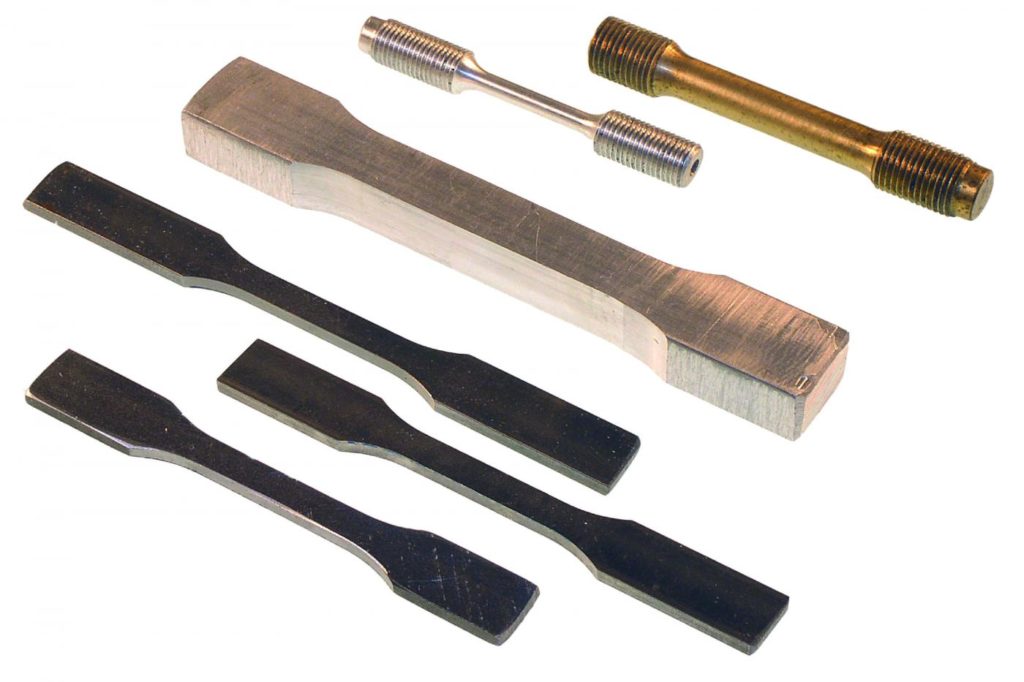A tensile test is a standard method used by material scientists and engineers to determine important material strength and ductility properties. For example, tensile tests can be used to measure the yield strength of a material, which is defined as the stress at which a material begins to deform plastically. Hill Engineering has ample experience performing tensile tests, and other mechanical property tests, in pursuit of our passion to maximize the potential of materials.
How Are Tests Performed?
The most common industry procedure used for conducting standard tensile tests is ASTM E8 (Standard Test Methods for Tension Testing of Metallic Materials). This procedure covers the tensile testing of metallic materials at room temperature. Results from this tensile test include: yield strength, yield point elongation, tensile strength, elongation, and reduction of area.
Tensile testing is most commonly performed on dog bone type specimens (image below) which come in round or rectangular sections. Tensile test specimens are required to have a test section length (i.e., gauge length) greater than 4 times the diameter to ensure consistent results.
For More Information
Hill Engineering has experience in all aspects of tensile testing and other related topics. Please look through our website for more specific information and examples including: additional information on fatigue analysis, the use of compressive residual stress to enhance performance, and details about fatigue testing. Please contact us for additional information.
